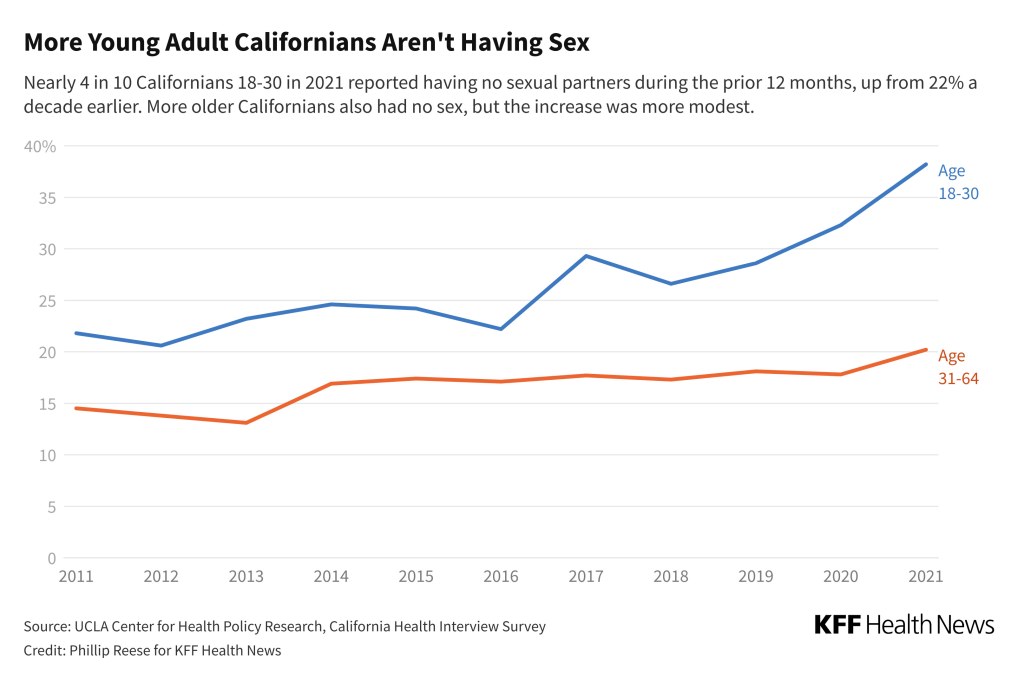Shannon Smith describes her daughter’s birth as not all that eventful. She and her husband drove 10 minutes from their home in rural Alabama across the state line to a hospital in Georgia where they had scheduled a C-section for what was anticipated to be a big baby.
And she was. Weighing in over 10 lb, Avery was born in April 2019 with what Smith affectionately recalls were “little rolls that everybody loved.”
Five days later, Smith got a call from the pediatrician. “They simply said her test was abnormal for SMA, and we needed to head to the office immediately to discuss the results,” she recalls. “They did not elaborate on what SMA stood for or give any other information, so we, of course, immediately looked it up and were devastated.”
SMA, spinal muscular atrophy, is an inherited genetic condition that impacts the nerve cells in the spine that control movement. There are four different forms of SMA that vary by age of onset, but the most prevalent form of SMA, type I, strikes the earliest and is the deadliest. Affected infants can show symptoms, such as difficulty breathing, crawling, walking, or swallowing, within the first 6 months of age. Many do not live past their second birthday.
“We could not comprehend how the baby we’d tried for years to have could possibly be taken away from us just like that. That was probably the absolute worst and hardest day of our lives, something we could have never anticipated needing to process,” Smith said.
Fast forward to two and a half years later, and Avery has hit every milestone. She walks, runs, and lives just like any other toddler, Smith said.
She was born the first month, April 2019, that Georgia began screening newborns for SMA. Had Avery been born in her home state of Alabama, she would not have been tested for SMA or diagnosed until she started showing symptoms.
Newborns in all 50 states, the District of Columbia, Guam, and Puerto Rico undergo mandatory newborn screening. Within a few days of birth, babies get their heels pricked for a blood spot that is sent to a state or regional lab for testing. However, newborn screening programs are state-run, which means the state a baby is born in determines the conditions for which they are tested.
“I spent a lot of time thinking about what could have happened and feel so extremely fortunate we had the advantage of newborn screening,” Smith said. “It honestly made me angry to think about what could have happened if we’d chosen a hospital in our own home state versus the one she was born at in Georgia.”
How Screening Programs Work
The first newborn screening programs began in the 1960s, after Robert Guthrie, MD, PhD, designed a simple blood test for phenylketonuria (PKU), a condition in which the body can’t break down phenylalanine. Diagnosing babies with PKU early is crucial, because breast milk contains phenylalanine. In 1963, Massachusetts instituted the first mandated screening program for PKU.
Today, state programs have expanded to include screening tests for anywhere between 30 to 70 conditions. Each year in the U.S., approximately one of every 300 babies is diagnosed with a condition through newborn screening, according to the National Institute of Child Health and Human Development.
Though states are responsible for their own screening programs, a federal advisory committee under the Health Resources and Services Administration (HRSA) oversees the Recommended Uniform Screening Panel (RUSP) to guide states on conditions for which they should be screening.
The initial RUSP was created by the American College of Medical Genetics (ACMG) in 2006 in response to the greatly expanded capacity to test for different conditions offered by tandem mass spectrometry. It was later adopted by HRSA and consisted of 29 core conditions that met a minimum criteria:
- The condition can be detected dependably by test within the first few days of birth
- Early detection and intervention have proven benefit
- An effective treatment is available
“I think that having a place where there’s an evidence-based review is very important, but states are not obligated to follow in either direction. They’re not obligated to put something on just because the RUSP recommends it and they’re not obligated to keep something off just because it didn’t pass the RUSP,” said Georgianne Arnold, MD, a geneticist and pediatrician.
Today, there are 35 core conditions on the RUSP. However, only 20 states test for all the recommended conditions. Most states that aren’t testing for all RUSP conditions are missing at least one of four conditions: SMA, mucopolysaccharidosis type I (MPS-I), Pompe disease, or X-linked adrenoleukodystrophy (X-ALD).
The biggest barriers to adding conditions to state screenings are slow legislative processes and funding, said Dylan Simon, associate director of public policy at Every Life Foundation, an umbrella advocacy organization for rare diseases.
“Things that make it through the RUSP should be considered to have passed a scientific and ethical standard. That has no relationship to cost and how expensive it is and how much work it is going to be for a state to set [the test] up,” said Arnold, a founding member of the ACMG.
There are two main cost hurdles: the cost to add a new condition and the cost to run the actual screen, both of which vary a lot by condition, Simon said.
SMA was the latest addition to the RUSP in 2018 and is screened for in 38 states. By the end of the first quarter of 2022, four to five more states, including the Smiths’ home state of Alabama, will have added SMA to their newborn screen, and approximately 95% of all babies born in U.S. will be screened for the disease, said Maynard Friesz, vice president of advocacy at Cure SMA, the group that nominated SMA to the RUSP.
In contrast, Pompe, MPS-I, and X-ALD are not tested for in the majority of states, despite being recommended by the federal panel years earlier (2013 for Pompe and 2016 for MPS-I and X-ALD).
“It will be our 6 year anniversary since the approval [of MPS-I for the RUSP],” said Terri Klein, president of the National MPS Society. Yet, by the end of this year, fewer than 30 states are screening for MPS-I, she said.
SMA can be tested for together with SCID, which states universally test for, cutting the cost of adoption. However, MPS-I, Pompe, and X-ALD require a whole new test. Without being able to “multiplex” those tests, there’s greater cost to the state labs, and thus much slower implementation, Simon noted.
Heavy Lifting
The National MPS Society began their nomination process for the RUSP nearly a decade ago.
“We recognized this was going to be an arduous lift to HRSA,” Klein said. The entire approval process took nearly 3 years, from getting their nomination approved in 2012, to presenting their case in 2013, and finally receiving a spot on the RUSP in early 2016.
Efforts to get conditions onto the RUSP and to pass newborn screening legislation have been driven mainly by patient advocacy groups, namely parents, Simon said.
Klein began as a parent advocate herself. Her youngest daughter was diagnosed with mucolipidosis III, a related rare disease that is also supported by the National MPS Society. She transitioned from her work in the engineering field to advocate for MPS and similar conditions.
Nominations for the RUSP must be supplemented by pilot studies, many of which also take years to complete. Once a condition has been added to the RUSP, advocacy groups must then go to each individual state legislature and present their case for the condition to actually be added to newborn screenings.
On average, it can take 5 or 6 years for a condition to go from the RUSP to being tested for in states, Simon said.
Now, states are beginning to implement RUSP alignment legislation, which will require them to add new conditions recommended by the federal advisory committee within 2 to 3 years. This new legislation changes the way states approach newborn screening, Simon said.
“As opposed to the RUSP being the goal, it changes the RUSP to the minimum,” he said. It also reduces the work that advocacy groups have to do within each state, he said.
So far, six states have RUSP alignment legislation. California and Florida passed laws in 2016 and 2017. Georgia, Ohio, Arizona, and North Carolina all passed legislation this year.
“I hope we can see a future where timelines can be collapsed on the federal level as well,” Klein said.
Early Treatment
Many conditions on the RUSP are progressive, so early detection and early treatment make a huge difference. Avery, for example, began treatment with the gene therapy product onasemnogene abeparvovec (Zolgensma) along with small molecule drug risdiplam (Evrysdi) at 3 months of age, before she began showing any symptoms. Today, unlike many children with SMA, she doesn’t need any respiratory or feeding support.
“Of course, we don’t know what life will look like 10 years from now, as both of these treatments are so new and only time will tell, but where we pictured we’d be today two and a half years ago versus our reality is so different,” Smith said.
According to one cost-effectiveness study conducted in Australia, newborn screening and early treatment with gene therapy for SMA saved $360,000 saved and 9.93 quality-adjusted life-years compared to no screening and later treatment.
For MPS-I, sibling studies, where an older sibling’s diagnosis leads to a younger sibling’s earlier diagnosis, also show that early treatment with enzyme replacement therapy can slow or prevent onset of the most severe symptoms.
The Politics of Pricking
On the flip side, there are also states that screen for conditions that aren’t on the RUSP or have been rejected from the RUSP.
Much of that is also the result of work by parent advocates. Beginning with New York State in 2006, Krabbe disease, a lysosomal storage disorder that impacts the nervous system, has been added to newborn screening panels in 10 states. This began with the advocacy work of Hunter’s Hope, an organization established by Football Hall of Fame star and former Buffalo Bills quarterback, Jim Kelly, and his family.
In 2010, Krabbe was rejected from the RUSP because it lacked a reliable test and proven treatment, according to the HRSA report from that time. Krabbe screening also introduced the dilemma of “patients-in-waiting,” whose infants who were deemed at-risk for but not yet diagnosed with Krabbe.
Newborn screening is no stranger to controversy. When states began mandatory screening for PKU in 1964, the American Medical Association voted to oppose legislation requiring compulsory testing for PKU.
Despite the opposition, newborn screening “caught on anyway, because it really was a good idea,” Arnold said. Newborn screening was named one of the 10 greatest public health achievements of the 2000s by the CDC.
Newborn screening legislation has its naysayers on the federal level as well. Currently, reauthorization of the Newborn Screening Saves Lives Act, which provides federal funding to state programs, is stalled in Congress because Senator Rand Paul (R-Ky.) is pushing to change the program’s opt-out research model into an opt-in one, which would require hospitals to obtain consent from all patients to use their de-identified blood spots for re search.
“Newborn screening is one of the places where medicine and politics meet, and that’s always a little unfortunate,” Arnold said.
![author['full_name']](data:image/svg+xml;base64,PHN2ZyB4bWxucz0iaHR0cDovL3d3dy53My5vcmcvMjAwMC9zdmciIHdpZHRoPSIxMjgwIiBoZWlnaHQ9IjgyMiIgdmlld0JveD0iMCAwIDEyODAgODIyIj48cmVjdCB3aWR0aD0iMTAwJSIgaGVpZ2h0PSIxMDAlIiBzdHlsZT0iZmlsbDojY2ZkNGRiO2ZpbGwtb3BhY2l0eTogMC4xOyIvPjwvc3ZnPg==)
Lei Lei Wu is a news intern for Medpage Today. She is based in New Jersey. Follow
Note: This article have been indexed to our site. We do not claim legitimacy, ownership or copyright of any of the content above. To see the article at original source Click Here



![author['full_name']](https://indexofnews.com/wp-content/uploads/sites/2/2022/01/newsomatic/LeiLeiWu2_188.jpg)





